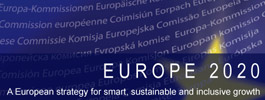by Martin Seychell, Deputy Director General of the Directorate for Health and Food Safety, European Commission

The burden of chronic disease is staggering: 86% of all deaths, or 4 million per year, are related to chronic diseases in Europe.
Chronic diseases develop slowly, are long-lasting and often incurable. They have caused great human suffering and placed an enormous burden on health systems as well. 70% to 80% of all healthcare costs in the EU - an estimated €700 billion - are currently spent on chronic diseases. In addition, chronic diseases completely stop many people from being able to work and nearly a quarter of those who do work - 23.5% - suffer from a chronic condition. Disease-related absenteeism, as a result, costs the EU an estimated 2.5% of GDP annually.
But although the diagnosis is bleak, the prognosis need not be. Many chronic diseases, like cardiovascular diseases and type 2 diabetes, could be prevented by healthy lifestyle choices, and others illnesses, like multiple sclerosis or dementia, can be managed to help patients feel their best and remain active for longer. In short, we can greatly reduce their burden by working together toward better prevention and management.
But how can we go about this? What approach could we take? To present its ideas and open up discussion on this theme, the European Commission is inviting Member States, international organisations and stakeholders to its Chronic Diseases Conference on 21 April in Brussels.
This event, designed to encourage greater cooperation, will also be the right time to launch the EU Health Policy Platform. It will be a powerful tool for communicating and working collaboratively between the European Commission and EU and national health stakeholders but also amongst health stakeholders themselves.
For all stakeholders, including those working in the field of chronic diseases, this platform will be a better way of advancing their work via online and face-to-face discussions, sharing of best practices, drafting of joint statements and promotion of events, and it gives access to a library of relevant materials.
The challenge is huge but so are the possibilities. So let us step up to the task. We are very much looking forward to finding effective solutions – together.







